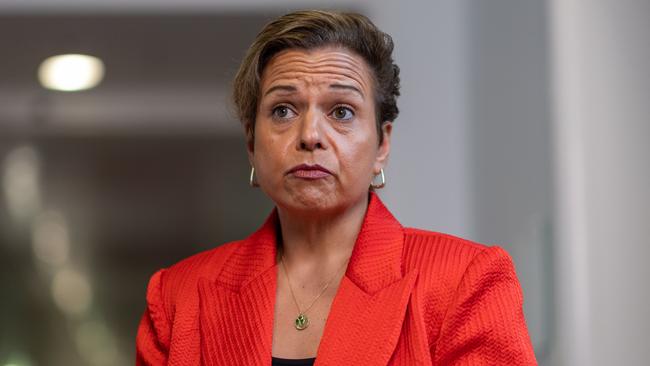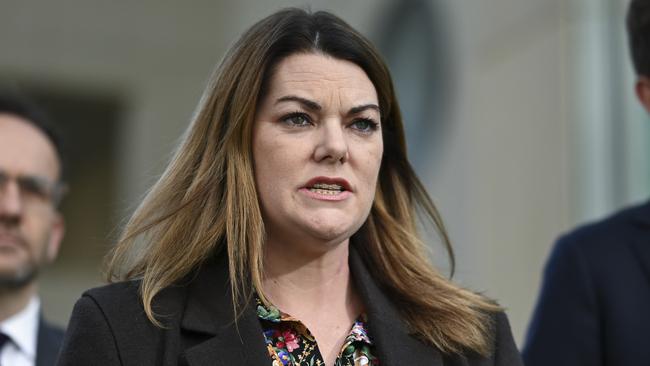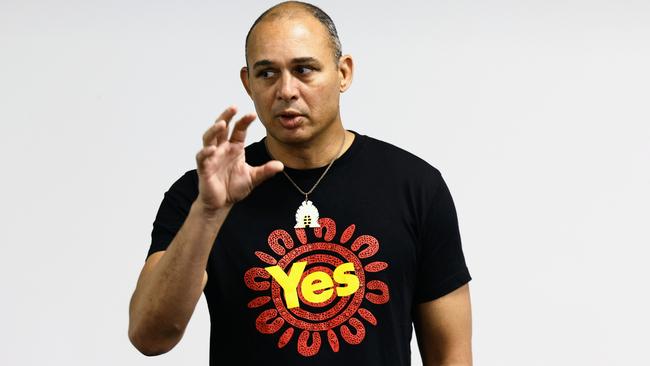
These sweeping measures are entirely for our protection, you see. As she assures us, “the government has no intention of stifling freedom of speech in this area” but instead aims to “keep Australians safe”.
Contrary to Rowland’s insistence, many of those making submissions in response to the exposure draft are alarmed about its implications for freedom of speech. You could say they think her claim this bill is simply about combating disinformation is, well, disinformation.
The Victorian Bar Council, for example, says the bill is “likely to be ineffective and unworkable in responding to the harms to which it is purportedly directed.” Instead it would instil a “chilling self-censorship” in platform users who “fear being labelled a purveyor of misinformation or disinformation”.
Queensland Council for Civil Liberties president Michael Cope warned the proposal would create “a body run by politicians … to be put in charge of deciding what statements made about politics and society are true or false”. Likewise, the Australian Christian Lobby said the bill “aims to enable tech companies to censor what the government perceives as problematic speech”.
But not all disinformation is bad, seemingly. The bill gives a free pass to that authorised by government, whether it be federal, state, or local. This means Treasurer Dr Jim Chalmers will still be able, as he did this month, to parrot incessantly the false line that Labor inherited a “trillion dollars of Liberal debt,” despite ABC Fact Check determining in May that this claim was “spin”. And last week that same body caught out Chalmers again, when he claimed the average full-time worker was “$3700 better off in the first year of the Albanese government”. Evidently the Treasurer has never heard of inflation.
If you are that stupid you believe what Energy Minister Chris Bowen posts on social media, you probably are convinced the renewables cup runneth over. Having made a total cluster of his promise to bring about a reduction of $275 in the annual household power bill by 2025, he tried last week to distract us by celebrating the fall in wholesale energy prices. Care to tell us about retail prices, Minister? Yet Bowen would not fall foul of this bill even had he claimed online that tens of thousands of cheering citizens spontaneously took to the streets to thank Labor for delivering them cheap energy.

Given their idea of free speech is that which is pre-approved by a politburo, you would think the Greens are delighted at the thought of a law controlling what the masses hear and see. But if anything, the party’s communications spokesperson, Senator Sarah Hanson-Young, thinks this bill is too soft. She wants the exemption for professional news content to be removed.
“It’s concerning to see some of these large [media] companies exempt from these reforms,” she told Guardian Australia last month. No prizes for guessing which organisation Hanson-Young has in her sights. Accusing the “Murdoch media empire” of “generating outrage,” she said it was “dangerous for our democracy”.
Talking about misinformation and things dangerous for democracy, Senator, do you remember the Senate estimates committee member who thought the fictional television series ‘Sea Patrol’ was a documentary? To think that person still sits in parliament is truly worrying.
But on a serious note, if Hanson-Young really wants to tackle disinformation, then she should call out those who last week and without evidence gleefully disseminated Hamas propaganda claiming Israeli forces had bombed al-Ahli hospital in Gaza City.

She could start with the Greens foreign affairs spokesperson, Senator Jordon Steele-John. Despite the evidence showing this explosion was caused by a Palestinian rocket misfire, his tweet attributing this “abhorrent, illegal crime” to an “Israeli air strike” remains online more than a week after it was sent.
Labor will struggle to get this bill through, but the times are ideal for its passage. For those thinking the defeat of the Indigenous voice to Parliament proposal means the anti-democratic ideologues are losing ground, think again. Theirs is a groupthink mindset that has not only long captured our universities and other public institutions, but also dominates big business. For them the referendum result is a temporary setback only.
If anything it will make them even more militant and determined, especially given their irrational belief the loss was due to “Trump-style misinformation”. And it is obvious how they intend addressing this. They want to appropriate the institutions of the state to silence dissenters.

“How do you regulate social media,” a brooding Thomas Mayo mused in an interview with ABC this week. This Yes campaigner and Referendum Working Group member clearly wants a reckoning. “I think that’s something that needs to be looked at into the future,” he declared, saying the “disinformation campaign” of the No camp “has been unprecedented in this country”.
The defeat was, according to Guardian Australia columnist Peter Lewis, a “telling repudiation of civil society”. No, it was a telling repudiation of the sermonising society, as Lewis inadvertently demonstrated with his own words: “Consider this: every faith, every major sporting organisation, every trade union, literally hundreds of NGOs and not-for-profits, universities, major corporations and industry associations all endorsed a ‘yes’ vote on the weekend,” he wrote.
The left-leaning think tank The Australia Institute left little doubt that it thought the process skewed.
“Misinformation and disinformation swamped the referendum campaign with arguments that often had little to do with what Australians were being asked to vote on,” said Executive Dr Richard Denniss last week. “Journalists, academics, peak multicultural bodies and civil society groups have called out the systematic, deliberate misleading advertising that tainted the referendum debate.” Did anyone catch mention of categories associated with the great unwashed, or did I overlook that?
Do not get me wrong; I abhor disinformation. But trusting politicians to be the information gatekeeper for our well-being? I would sooner believe the next heavily accented caller who tells me he is from Telstra and that my computer is compromised. If government presumes I am incapable of deciding for myself what is true and what is not, I will respond by using an expression from George Orwell’s Nineteen Eighty-four. They can stick their disinformation bill up their memory hole.
As the Victorian Bar Council notes, “It is widely accepted in liberal democratic societies that it is better to fight information with information and to attempt to persuade rather than coerce persons to positions grounded in evidence and fact.”
Still, we must thank Prime Minister Anthony Albanese and Michelle Rowland for giving us a good belly laugh. A government agency instructing us on who to trust and what we should close our eyes and ears to – really? The biggest furphy of them all is that no-one is better grounded in facts and reality than a Canberra-based public servant.








If Communications Minister Michelle Rowland is to be believed, we have no cause to fear the proposed Combatting Misinformation and Disinformation Bill, which would empower the Australian Communications and Media Authority (ACMA) to police online platforms.